What makes a 'good marriage'?
How do women and men cope with changing cultural expectations surrounding family, gender and romantic love?
What emotional and social resources do people draw upon to survive experiences of suffering—and even violence—within intimate relationships?
And what happens when new expectations about women’s rights and long-standing cultural patterns collide?
The film
Bitter Honey is a feature-length documentary presenting an intimate and emotionally charged portrait of three polygamous families in Bali, Indonesia. Following these families over a seven year period, the film portrays the plight of Balinese co-wives, for whom marriage is frequently characterized by psychological manipulation, infidelity, domestic violence, and economic hardship.
Living in a society where men have authority in many domains, these women have little voice in steering or protesting the conditions of their domestic lives. Bitter Honey draws attention to their struggle, documents the work of those taking steps to better protect and empower them, and aims to trigger a wider conversation about contemporary polygamy and women’s rights in Indonesia.
Polygamy in Bali
The practice of a man taking multiple wives has deep roots in Balinese culture and history and, while always practiced by a small minority of families, has persisted up to the present day.
Balinese polygamy, known locally in formal Indonesian as poligami or more colloquially as madu, has functioned as a way to build family alliances and establish political power, display personal potency, and accommodate male sexual appetites. It continues to be acceptable under customary Balinese and Indonesian state law, with the overarching proviso being that husbands are able to take care of all of their wives and treat them fairly and equally. In fact, some leaders and average Indonesians defend polygamy as good for women, by pointing out that through the arrangement they are able to share significant household and ritual duties and in certain circumstances secure social status and domestic stability as an additional wife.
But what is the lived experience of this marriage structure? In other words, what are the multiple effects of polygamy on husbands, wives, and children? What are the culturally specific perceptions, beliefs, and ideologies underlying the practice of contemporary Balinese polygamy and how are these utilized to make sense of it? How does being in a polygamous marriage impact a husband or wife’s understanding of self and influence the behavioral patterns and affective textures of domestic life?
The subjects
Darma and his family

Now in his late forties, Made Darma has few regrets about his polygamous lifestyle. He runs his large household with a firm hand, rotating his sexual affections among his wives according to a nightly schedule. Each of his wives takes a six-month turn assuming responsibility for the household’s ritual duties, allowing the other wives to work outside of the home and earn wages to contribute to the family’s upkeep. Darma has little tolerance for arguments or jealousies among his wives, and does not hesitate to threaten physical force should they or his children disturb his peace. Although he admits to having deceived his wives by attracting them with the reassurance that he was single, he laughs off his trickery as the means to achieving his desires. He claims that even though he’s no longer young, he could find another dozen wives if he so chose.





“The suffering started when I found out he already had many wives.”
PurnawatiDarma's 5th Wife
Sadra and his family

Sadra married his first wife, Ketut, when they were both in their teens, eloping against her family’s wishes. He describes their marriage as having been a good one until they had their first child and his wife quit her job, straining the family’s finances. He began beating both his wife and his mother, including one episode in which he hit Ketut in the head with a pair of heavy iron scissors. Sadra expects Ketut to serve him around the house, and he gets especially angry with her when she is late bringing him food or coffee.
Sadra met his second wife, Murni, through a mutual friend. He began seeing her, keeping the affair secret from his wife and also lying to Murni, who believed he was unmarried. After Murni became pregnant, Sadra forced Ketut to consent to a second wife by threatening to send her home to her parents and keep her children if she did not. Sadra’s parents advised him against this new marriage, warning that polygamy, in their experience, was a difficult path. Indeed this new marriage was problematic from the start, in part because Sadra worries that Murni’s education makes her unwilling to submit to his decisions.
Sadra admits to having a problem with aggression, and has consulted with both friends at work and Balinese traditional healers (balian) to try to change his behavior. While some friends have pointed to Sadra’s experiences growing up with a polygamous father who beat his own wives, and healers have claimed he is a victim of black magic, Sadra himself tends to view his treatment of women as an effect of his bad karma, earned through his deeds in a past life. While Sadra does not believe polygamy to be inherently wrong, he admits to having deceived his wives and allowed his desires to outweigh the greater good of his family. He frequently becomes depressed, frustrated and self-loathing, appearing to vacillate between idealizing traditional models of Balinese masculinity in which he would hold absolute power over his wives and recognizing that his wives have strong feelings about the hurts he has caused them.
Sadra also has complicated relationships with his children, who have witnessed his violence towards their mothers and admits to feeling haunted by fears that they will end up like him or that they will turn against him and cast him out in his old age.

Ketut recalls being shocked and hysterical when Sadra broke the news that he was planning to marry his pregnant girlfriend. She refused to grant her consent, but Sadra’s threat to divorce her and send her back to her parents without her children convinced Ketut that she had no choice but to stay. Ketut recalls feeling heartbroken by the new marriage, and intimidated by Sadra’s educated, seemingly self-confident second wife. When Sadra would bring his wife to the home he shares with Ketut and sleep with her in another room, Ketut would be overwhelmed by jealousy and hurt. While the two women eventually reached an uneasy peace, working together during ceremonial preparations, their relationship has never been close.
Life has become somewhat better for Ketut as the family’s economic situation has improved. Ketut now has her own job at the same factory that hired Sadra, and their mutual employer encourages Sadra to treat Ketut well. While Ketut does not imagine that she will ever be able to leave her husband and children, she hopes that such positive outside influences on Sadra can help him to refrain from violence and treat his family better than he has in the past.
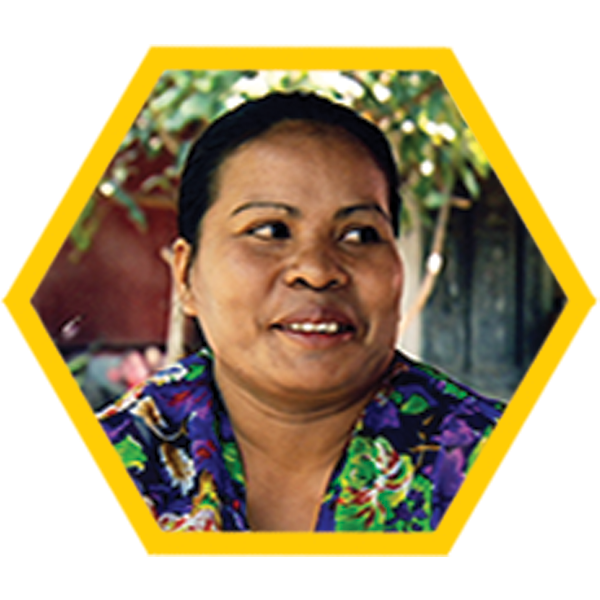
Rather than join Sadra’s household, Murni chose to live separately from her husband and co-wife, and continue to work to support herself and her growing family. Today, Murni spends most of her time in a town about 30 miles from Sadra’s home. She and her sons live together in two small rooms in a boarding house. Murni’s job at a hotel requires that she spends much of her time away from her children, and she is often forced to leave them alone in their rooms to take care of themselves. Murni places a high value on education and on teaching her sons moral behavior, and insists they respect their father even when she feels he has abandoned them.
When Murni was first interviewed in 2008, she insisted that her marriage was a good one, despite the challenges of sharing her husband with a co-wife and living on her own far from any structures of extended family support. A proud woman, she stressed how important it was for her to accept the fate that God had set for her, and to draw on her own inner strengths to rise to the challenges of polygamy. She spoke lovingly of Sadra, whose company she claimed to enjoy, and whom she was still attracted to as a sexual partner. But by 2010, Murni seemed to be struggling with the strains of her life. She admitted that Sadra had been breaking his promises to her and his children and his financial contributions had become increasingly erratic.
The distance and conflict has left Murni deeply troubled: should she stay married to Sadra or not? She realizes that, as a working woman, she could likely get by without him. But she also knows that as a divorced woman she would incur the stigma of society and perhaps even be left without a family to reincarnate into in the afterlife.
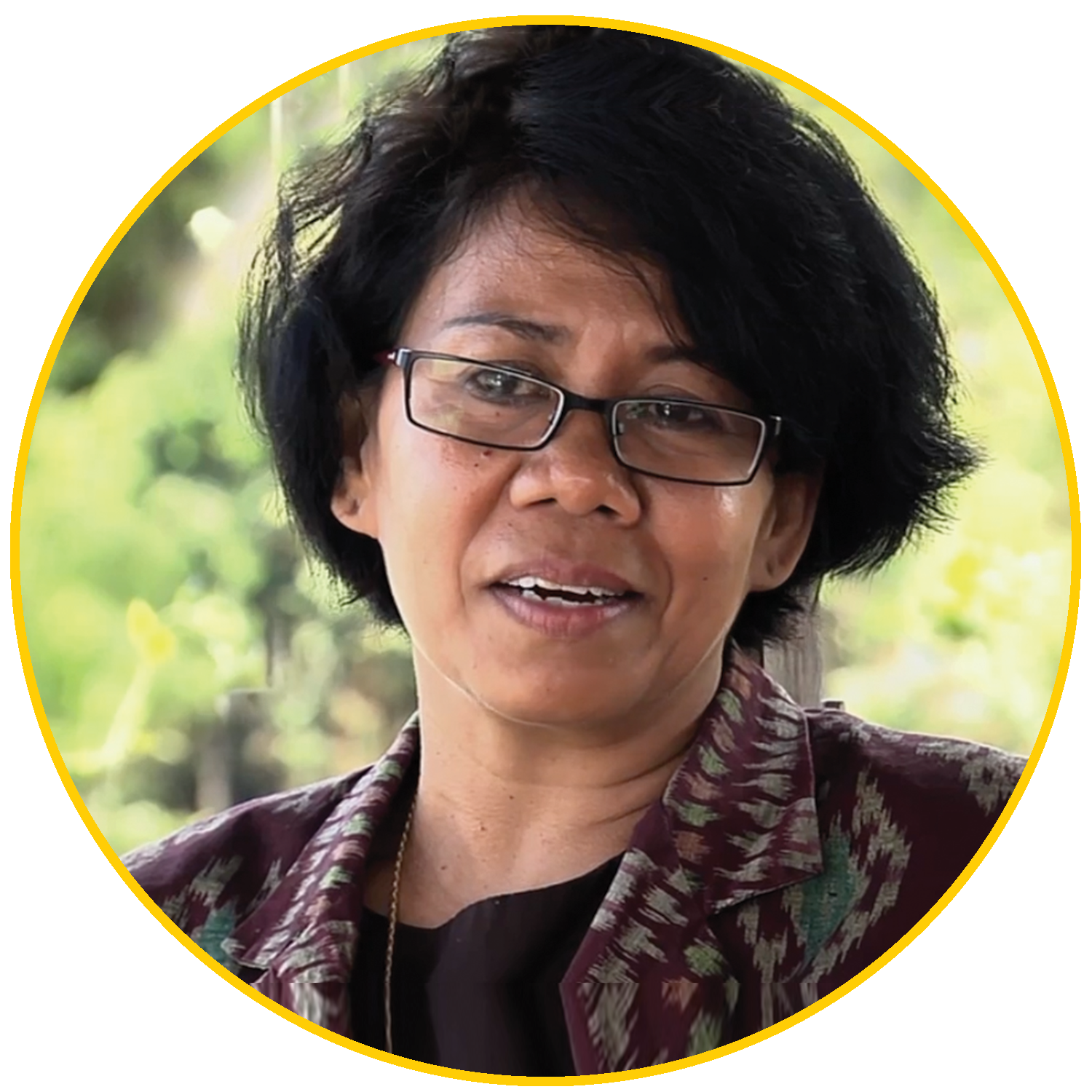
“Women often aren’t aware that they are being manipulated. Women should communicate clearly so that each wife will not blame the others for her situation. Women instead need to work together to better their situation.”
Luh Putu AnggreniWomen's Rights Attorney
Tuaji and his family

To outsiders in the village, Tuaji’s family appears to be a model of harmony. His wives are known for rarely arguing, and for supporting each other in illness and with ritual responsibilities. They acknowledge, however, that Tuaji’s fiery reputation helps to keep order in his household. Today, none of Tuaji’s many children practice polygamy. Several of his sons have high-ranking positions in the military and feel they must keep their father’s marriages secret for fear of being marked with the stigma of coming from a “morally inappropriate” family. While polygamy is legal in Indonesia, it has been forbidden to state employees, known in Indonesian as pegawai negeri, since the Marriage Act of 1974.

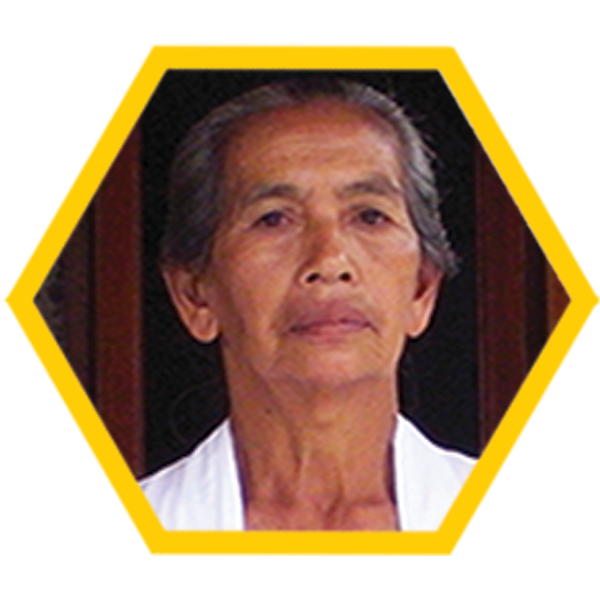
She didn't want to [marry her] but he kept after her. She didn't want to be his wife, but wen my younger sister came here, he got angry with me...He was embarrassed in front of the people from Tampak Siring. 'They say that you want to marry again but the girl doesn't want yo,' like that.

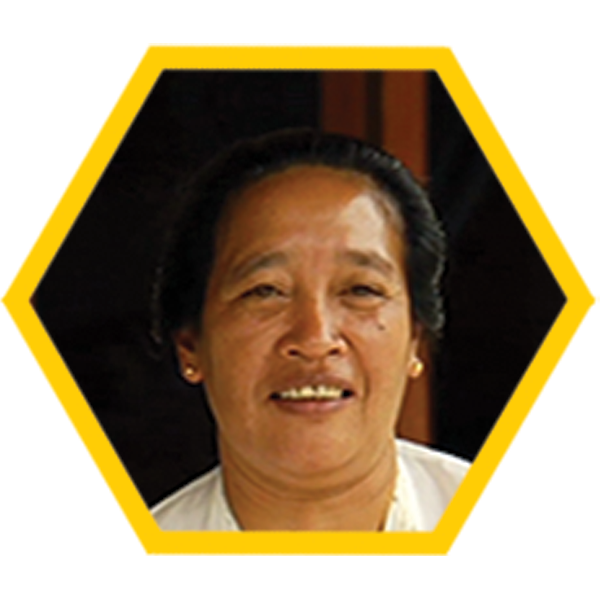
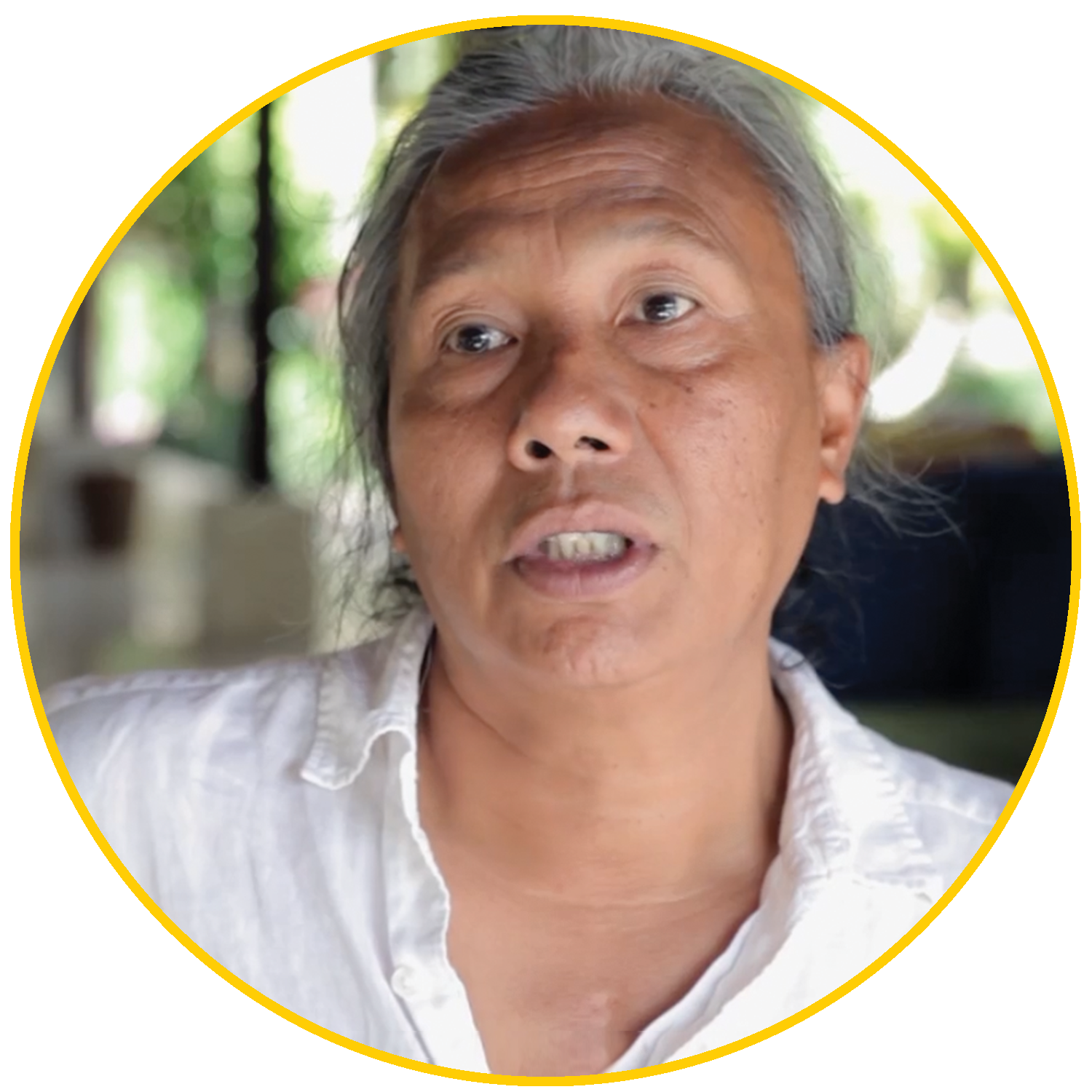
“There is an old school of thought in Bali which believes that you get power from having many wives. The more wives you have, the more powerful you’ll be. This is still practiced… It’s like the concept of Bhairawa in Hinduism, which says that lust should not be restrained. Lust should not be suppressed, but it must be followed, until you reach your limit…”
Degung SantikarmaBalinese Anthropologist
Meet the Filmmakers

Elemental Productions
Elemental Productions is a Los-Angeles based ethnographic documentary film company dedicated to the production of films focusing on the relationship between culture, psychology, and personal experience. Elemental Productions was founded in 2007 by anthropologist Robert Lemelson and evolved out of years of fieldwork and thousands of hours of footage gathered in Indonesia since 1997.

Robert Lemelson
Robert Lemelson is a cultural anthropologist, ethnographic filmmaker and philanthropist. Lemelson received his M.A. from the University of Chicago and Ph.D. from the Department of Anthropology at UCLA. Lemelson’s area of specialty is transcultural psychiatry; Southeast Asian Studies, particularly Indonesia; and psychological and medical anthropology. He currently is a research anthropologist in the Semel Institute of Neuroscience UCLA, and an adjunct professor of Anthropology at UCLA.

Alessandra Pasquino
Alessandra Pasquino is a filmmaker and producer of documentaries, commercials, and special projects. She has collaborated with many artists and celebrities including: Oliver Stone, Wayne Wang, Klaus Kinski, Gregory Colbert, Leonardo Di Caprio, Pietro Scalia and Matthew Rolston.

Chisako Yokoyama
Chisako Yokoyama has worked as an editor and assistant editor on studio motion pictures, independent features and narrative and documentary films. Her credits as editor include the English and Japanese language films “Saki,” “Takamine” and “Goemon” and as first assistant editor, “American Gangster”, “Memoirs of a Geisha”, “Black Hawk Down”, “Gladiator”, and “Good Will Hunting.”

Wing Ko
Wing Ko has collaborated with a who’s who of modern artists, musicians and filmmakers. He worked with Spike Jonze on several music videos and edited the pilot for MTV’s “Jackass.” Wing helped create more than 80 music videos for Nine Inch Nails, Soundgarden, Public Enemy and other top bands of the time. For more than 15 years he has traveled around the world and crewed skateboard videos.

Malcolm Cross
Malcolm Cross BSc Mus. Studied music performance and composition in London at the Guildhall School of Music and Drama, additional Post Graduate studies in Jazz and Studio Music. Malcolm has been a professional composer for film, television and stage since 1996. His original film scores include ‘Insomniac Obsession’ (directed by Paul Cameron Carter/PS Films) and ‘Oh Saigon’, a feature-length documentary for Sundance Channel directed by Doan Hoang, ‘I Dream of Dog’ an independent comedy short directed by Jessica Rice and ‘The Grey’, a supernatural thriller directed by Norman Trotter IV.

